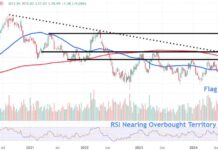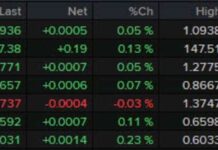This week was full of geopolitical events and political risks, especially in France. President-elect Donald Trump announced tariffs on imported goods from Canada, Mexico, and China, which could lead to retaliatory actions and trade tensions. Israel and Hezbollah agreed on a ceasefire, but sustainable peace in the region is still a long way off.
In France, political risks are increasing, with the German-French bond spread widening to its highest level since 2012. The minority government faces a crucial vote on the social security budget next week, which could result in a collapse if it fails to pass. Uncertainty looms over French politics as the government seeks to satisfy the National Rally for their support.
On the economic front, inflation reports from the euro area and the US were released this week. In the euro area, inflation increased in November but less than expected, while the US saw a rise in headline and core inflation rates. Both sides of the Atlantic are still experiencing a disinflationary process.
Looking ahead to next week, Chinese PMIs for November will be released, with expectations of a flat reading for the official PMI manufacturing. In the US, data on manufacturing, job openings, payrolls, and Fed speakers’ statements will be key highlights. In the euro area, the ECB-preferred wage data and retail sales numbers are eagerly anticipated.
Overall, the geopolitical landscape remains volatile, with political risks in France and trade tensions escalating. Economic indicators suggest a mixed outlook for inflation in the euro area and the US. As we head into the next week, all eyes will be on key data releases and developments in geopolitics that could impact global markets.

















